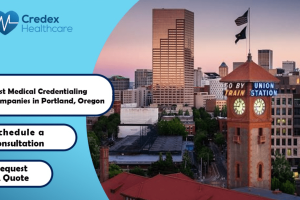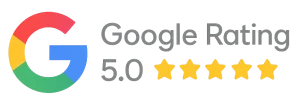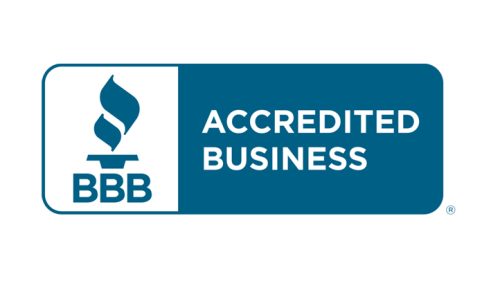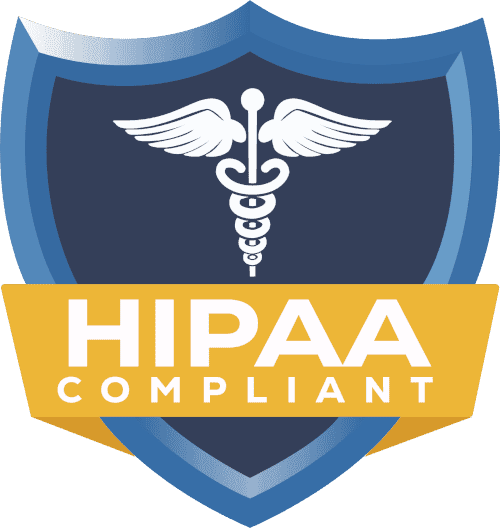How Much Does Medical Credentialing Cost in New York

Credentialing is the factor that will allow you to see insured patients and receive payment. Your practice may be a single-practice, multi-provider clinic or a hospital in NYC. Still, realistic costs of credentialing will assist you in budgeting the exercise correctly and in placing the providers into the money-making commitment within a short time, without any surprises.
This blog discusses the realistic cost amounts, New York-based fees, cost differences, and at what point it is economical to outsource to a company like Credex Healthcare.
Overview of Credentialing Requirements in New York
All the payers (Medicare, Medicaid, and commercial payers like Empire BlueCross BlueShield and UnitedHealthcare) demand documentation, verification, and different fees. State enrollment is also necessary in New York with the help of eMedNY. Examples of typical requirements are:
- Unexpired, active New York professional license(s).
- NPI, practice FEIN, tax information.
- DEA registration (where necessary).
- Evidence of malpractice insurance having coverage limits.
- CAQH ProView profile (most payers are based on CAQH).
- Copies of the diplomas, board certifications, and supervising agreements (where necessary).
In the case of New York Medicaid, it is eMedNY that is offering enrollment forms and types of providers, which require an application fee. Visit the official enrollment pages of the state to find up-to-date amounts and regulations.
Typical Cost Range for Credentialing Services (New York)
The average commercial payer applications are priced at $250-$800/ payer, per provider. An initial account with one provider in two or more networks (e.g., Medicare, Medicaid, and various commercial plans) costs about $1200-$2500 on average.
Cost Components You’ll See
Application/administration fee: $250-$800 for each payer. Covers the collecting of documents, preparation of applications, and follow-up.
Senior enrollment fees (e.g., New York Medicaid): Certain types of providers pay an eMedNY application fee. Make sure that you are checking the newest fee rates and types on eMedNY.
CAQH profile configuration/renewal: CAQH ProView is free, but you have to spend staff/vendor time to develop and maintain the profile. Most companies are also covering CAQH work as part of the per-payer price; others are adding it as a minor addition or bundling it.
Expedited service surcharge: Varying by application, with expedited service, is often $50- $300.
Why costs vary: The high payer mix in NYC (NYC regional plans, various portals) and the Medicaid regulations compound administrative complexity, particularly among specialty providers and larger groups, and expand cost ranges.
One-Time vs. Ongoing Maintenance Fees
First enrollment (once-only): Maximum effort: collecting documents, organizing attestations, organizing primary-sources checking, and first-of-their-kind submissions. Average individual per provider: $1,250 – $2,500, varying by panels.
Recredentialing/maintenance (per cycle about 2 to 3 years): The fee is usually $100 to 400 per payer. CAQH re-attestation does not have fees, although time-consuming; other vendors impose a low maintenance charge.
Factors That Affect Credentialing Costs in New York
- Payers: There are many payers as applications. Hypothetical: five payers, 5 application fees (volume deal is typical).
- Specialty and documentation load Specialists could need board approval, hospital authority, or other certifications- more administrative time, more money.
- Practice size & provider mix: Per-provider pricing can decline as the size gets bigger, but coordination goes up (group NPI/FEIN, delegated credentialing, rosters).
- Medicaid/Medicare necessities: eMedNY and CMS-855 include permanent steps and other potential state charges; the state of New York may need additional compliance records.
- Speed/expedite requirements: Decelerated schedules demand additional personnel man-hours- high bids required.
- Plan-specific charges: In certain plans or state programs, they impose application fees (in particular, NY Medicaid).
Local Payer Enrollment Challenges in New York
The number of payers in NYC is dense, which includes Empire BCBS, local HMOs, and regional plans with their portals and checklists.
Heightened primary-source verification: A significant number of payers conduct comprehensive primary screening, which increases timeframes.
The Multifaceted nature of Medicaid: in New York, Medicaid enrolments are distinct formats and compliance issues, and application fee regulations that increase the time and effort of administration but require stage complexity.
Consequently, New York schedules tend to be at the end of the national averages (~6090 days). Time cost Delays can cost the lost of in-network revenue thousands in loss per provider per month.
In-House vs. Outsourced Credentialing in NYC: Cost Comparison
In-House
Pros:
- Direct control.
- Large volume savings could be possible.
Cons:
- Occupied overhead: wages, benefits, software, training, and clinician time on paperwork.
- Greater chances of error or delays due to the churn of personnel.
- Cost in the internal is easily underestimated; full-loaded costs can be equal to or even greater than that of the vendors.
Outsourced (Credentialing Firm)
Pros:
- Per-payer pricing is predictable, workflows are mature, and there are payer escalation paths; typically, higher throughput.
- Informed of portal developments and specialty complexities.
Cons:
- Per-payer rates may be steep in the short run.
- Needs due diligence of vendors and SLAs.
Summary
Considering the complexity of New York, outsourcing can save the small to mid-sized practices or groups that frequently add providers more money in saved time, reduction of denials, and in-network dates.
How Credex Healthcare Helps New York Providers Save on Costs
- Open pricing: Basic per-payer payments and bulk incentives on multi-provider enrollments; therefore, clinics can make predictions on expenses.
- CAQH and eMedNY experience: To put it in other words, we create and keep CAQH (a free platform, your cost of time) and fill the eMedNY form correctly to prevent redundancy.
- Payer relationships. Proactive payer follow-up and build-up (e.g., Empire BCBS, UnitedHealthcare) lowers time-to-panel.
- Maintenance plans: Recredentialing and CAQH attestation assistance to support maintenance to avoid lapses.
With your help, providing your provider count, specialty, and target payer, Credex can provide a line-item estimate of one-time and recurring expenses.
Fast Turnaround & Transparent Pricing: Questions to Ask Vendors
- Is it priced on a per-provider basis or a per-application basis? Does it have multi-provider discounts?
- CAQH setup charged on its own (note: CAQH itself is free)?
- Do you manage eMedNY and CMS-855 forms? Passing state fees through how?
- What are your mean schedules and liftoffs? (Request SLAs and past metrics.)
- What is your price on recredentialing and CAQH maintenance?
Conclusion
New York credentialing is also a cost that can be managed considering per-payer effort, eMedNY/CMS enrollment, CAQH maintenance, and the hidden cost of delayed paneling. To most of the small and mid-sized practices, having a vendor such as Credex Healthcare reduces the overall cost and reduces the time to payment.
Describe the number of providers you have, their specialties, and payers that you are targeting (Medicare, Medicaid, Empire/Anthem, UnitedHealthcare, and NYC regional plans). We will give you a practice-specific, line-item estimate so that you can easily compare the in-house facility costs with outsourcing costs.
FAQs
What does it cost to credential a provider in New York?
Most vendors charge $250–$800 per payer, per provider. First-time multi-payer enrollment for one provider typically totals $1,200–$2,500, depending on the number of payers and complexity.
Are credentialing costs higher for NYC-based practices?
Not necessarily by list price, but NYC’s payer density and deeper verification often lengthen timelines—raising effective cost through delays.
How long does credentialing take in New York?
Commonly, 60–90 days from submission to paneling. Medicaid/Medicare can take longer. Expedited options, when available, may add fees.
Do estimates include CAQH and Medicaid (eMedNY)?
CAQH ProView is free; vendors bill the time to build/maintain the profile. eMedNY has its own forms and may require state application fees (passed through at cost). Confirm inclusions with your vendor.
Does Credex handle New York recredentialing?
Yes. Credex offers recredentialing and ongoing CAQH maintenance packages, tailored to your provider count and service level.



















